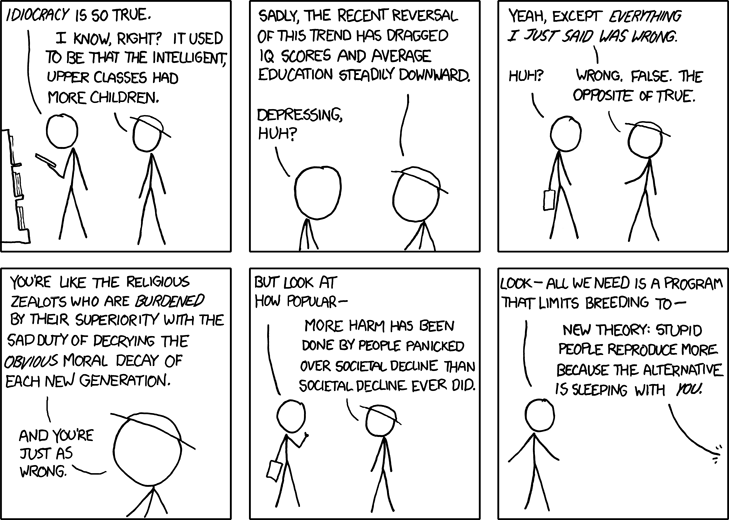A college education (and even more, the "college experience") costs a lot of money. One of the most bemoaned college-related expenses is textbooks. Every quarter or semester, students trudge through their local bookstores and shell out hundreds of dollars for the heavy, price-inflated compendiums of glossy photos, useless asides, and (maybe) small slivers of information.
The pattern of behavior is always the same: the students scan the bookstore shelves for cheaper, used editions (perhaps $70 a pop instead of $100). Some classes require multiple books; some classes require ten. The students carry the stack of texts to the counter and pony up hundreds. In class, the books may never be used- it's impossible to tell when they will actually be relevant.
Later, these students gather the books up and try to return them to the store for a pittance (maybe $20-30). Often a book is not returnable because it is an "old edition"- a new version has just come out, with minor updates such as a new cover photo and a table with a new layout. Next quarter, everyone will be buying the full-priced new editions.
The textbook industry is a racket. The books are made unnecessarily expensive, for they are puffed-up with frilly nonsense. My school drove up the price of Psych 100 textbooks by requesting a special "Buckeye Edition"; the only difference was a black-and-white photocopy inserted into the first page, which acknowledge the student reader as a member of Ohio State. It's a hose.
Last year, however, I realized that I never really have to pay for textbooks. For the past four quarters of school, I have not laid a cent on a bookstore's counter. As I see it, there is no reason for any student to ever pay for textbooks, ever again. Here are my simple steps to attain free textbook access:

 Almost nothing annoys me more than the bemoaning of the future as an immoral, uneducated, unenlightened time. Many people- of both conservative and liberal ideologies- call up sunny images of a past where people were happier, smarter and "better". Usually we can point to political and technological advancements that demonstrate this is not the case.
My deeply-held belief is that the future is bright and brimming with promise, that today's youth are not hopeless or devolved, and that new fangled technology will not cause the collapse of our species. When bad things arise, we are tempted to look to the past with a fond and foggy nostalgia- as if fundamental human problems were not always the same. Bringing apocalyptic rhetoric into the discussion of modern problems is inappropriate, I think, because every generation has its big, scary troubles. As this comic advises, we should always look to the evidence and not catastrophize.
Almost nothing annoys me more than the bemoaning of the future as an immoral, uneducated, unenlightened time. Many people- of both conservative and liberal ideologies- call up sunny images of a past where people were happier, smarter and "better". Usually we can point to political and technological advancements that demonstrate this is not the case.
My deeply-held belief is that the future is bright and brimming with promise, that today's youth are not hopeless or devolved, and that new fangled technology will not cause the collapse of our species. When bad things arise, we are tempted to look to the past with a fond and foggy nostalgia- as if fundamental human problems were not always the same. Bringing apocalyptic rhetoric into the discussion of modern problems is inappropriate, I think, because every generation has its big, scary troubles. As this comic advises, we should always look to the evidence and not catastrophize.